New York/Stadiums
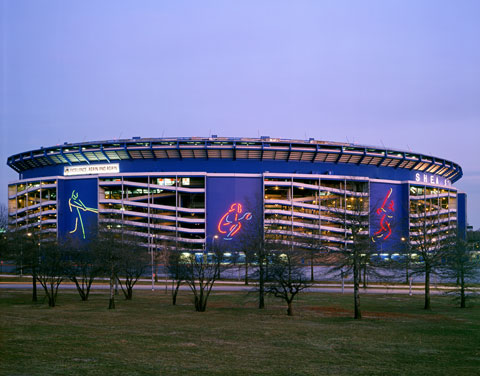
Shea Stadium -- © Brian Rose
Opening day is not far off for New York's two teams each with new stadiums. Both promise to be more pleasant places to watch baseball, even if some historical patina is lost forever. Yankee Stadium as I wrote before "will, like the old one, remain a building on the street hugging the elevated subway. Not a stadium machine, like so many others. Glimpses of the field will still be possible from the windows of the passing trains, and a replica of the famous frieze will wrap around the upper deck."
Both stadiums follow the fashion of retro ballparks inspired by Camden Yards in Baltimore, and replicated in various forms numerous times since. Yankee Stadium echoes itself--or rather its original self--before renovation. It relates to the neighborhood around it, and will, I think wear well in the Bronx.
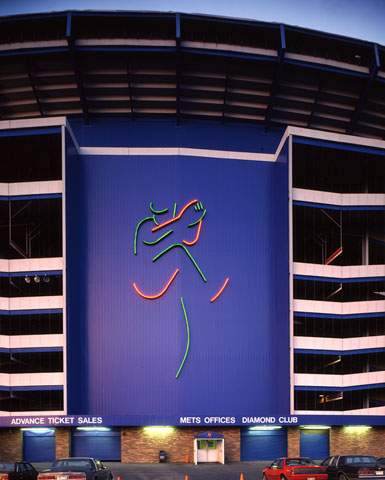
Shea Stadium -- © Brian Rose
The Mets new stadium in Queens, named CitiField after the barely breathing mega bank relates to the distant memory of Ebbet's Field, which of course was in Brooklyn, not Queens. It replaces a mostly unloved stadium that had little charm or comfort. It was, however, a very streamlined structure reflecting its time period compared with the new/old rather fussy architecture of Citifield.
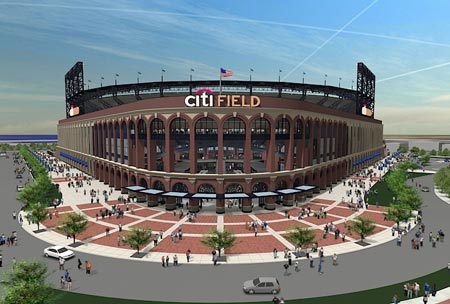
CitiField rendering, Queens

Ebbet's Field, Brooklyn
Ebbet's Field stood in the midst of a tightly knit urban neighborhood while the new reincarnation of it stands in the same vacant parking lot that Shea Stadium used to occupy. Wrong history, wrong location. The real history here is the still vivid memory of two world fairs with their visions of modernity and utopian urbanism. Imagine a stadium design that played to those memories rather than a neighborhood in Flatbush, Brooklyn.
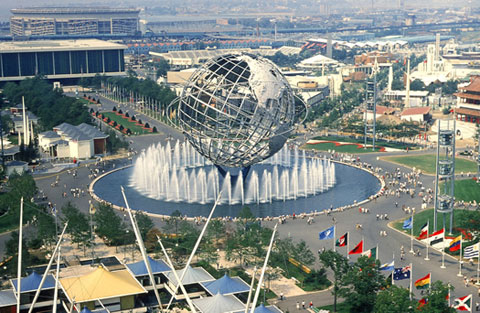
1964 World's Fair with Shea Stadium at rear
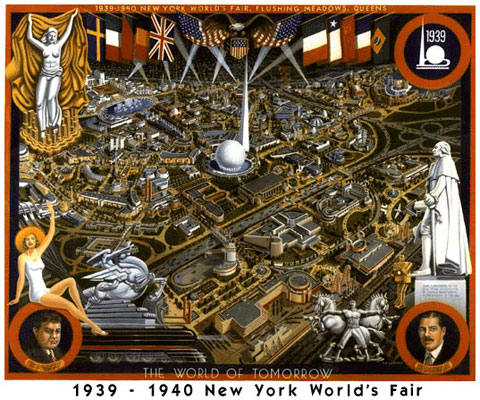
Alas, the new ballpark evokes only fictitious history, though it will undoubtedly be a nice place to see a game. But it's another lost opportunity for architecture in New York City.

2 Comments:
Just a side note- that large aqua blue rectangular building with white trim between Shea and the Unisphere was the United States pavilion. It remained after the fair until the mid seventies, when people continually broke in and set booby traps for the unsuspecting. Eventually, I believe a body or two was found before being demolished.
My first trip to New York was a visit to the World's Fair in 1964 with my father. We actually camped in a state park on Long Island and drove in.
The following year I returned to the Fair to perform with the Colonial Williamsburg Fife and Drum Corps. We played in the Singer Bowl, which no longer exists.
Both trips were thrilling, and pointed to my eventual move to New York City.
Post a Comment
Links to this post:
Create a Link
<< Home